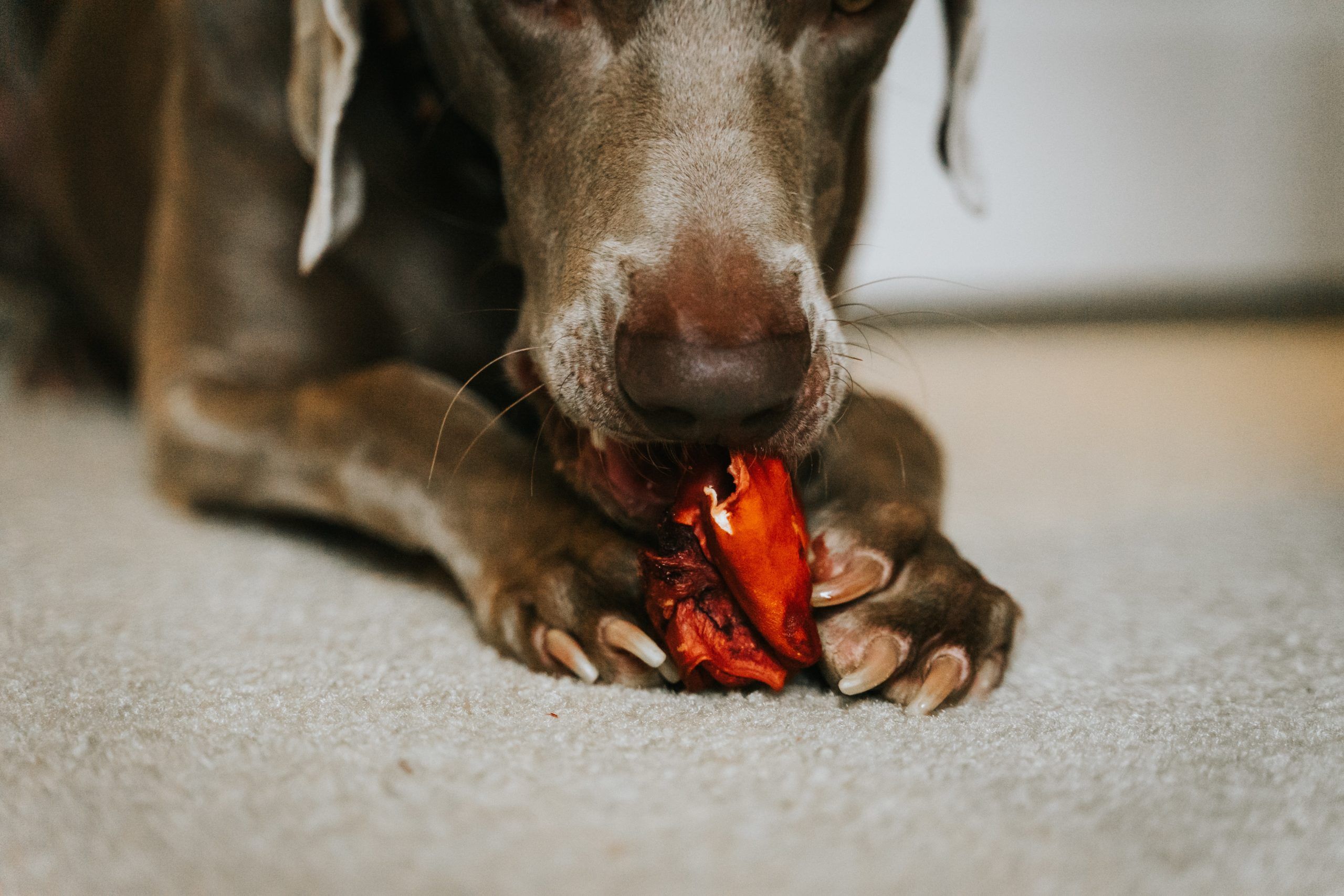
What Every Dog Owner Should Know About Food Allergies
If you have started to notice skin rashes or issues on your dog, or they are dealing with increased itching or scratching, they may be sensitive or allergic to something they’re eating. Here we’ve explained the facts, so you can understand the most common causes, frequency and proper treatment methods of food allergies in dogs.

What causes food allergies in pets?
Just like humans’, dogs and cats’ immune system sometimes misinterprets a substance as dangerous, thus triggering a reaction. For example, a dog's immune system may confuse proteins as invading substances, consequently creating a strong body reaction in the form of itchiness, shaking, diarrhea, inflammation etc.
What causes these misinterpretations? In most cases it has to do with genetic predispositions to immune system anomalies, however, studies are also focusing on the early stages of development when the immune system may largely be weakened or changed by the usage of antibiotics, environmental changes and so on.
Common triggers to allergic reactions include some food ingredients, environmental causes (dust mites, grass, pollen, etc.) and skin changes, like flea bites. Most pet owners confuse their pets’ reaction to some food ingredients as allergies, while it’s actually food sensitivity that is the problem. Unlike an allergy, food sensitivity doesn’t include an immune system response, but is rather an intolerance to a specific ingredient that over time causes symptoms like bowel irritability, itchiness, and even chronic ear or skin infections. This difference can be tested and diagnosed, so make sure to consult your vet before jumping to any conclusions.
Related: Harmful Pests That Can Affect Fido & Your Family
Signs of food allergies in dogs
Symptoms of food allergies in dogs may vary, but the most common are non-seasonal itchiness, runny eyes and skin irritation, redness and inflammation, mostly focused around ears and feet. Chronic itchiness, coat patching, swelling of the face, lips, feet, earflaps can also develop if the illness is not addressed. The symptoms will usually develop at an early age, during the first year, but it can also show up later in adulthood.
A dog’s allergic reaction to food may also be focused around the gastrointestinal area, including vomiting, diarrhea, bowel irritability and inflammation. All of these symptoms may indicate a completely different illness, so if you notice your pooch experiencing any of these problems, make an urgent appointment with your vet and check for other possible health issues.
Which foods are most likely to cause an allergic reaction?
The triggering food ingredient of allergic reactions in dogs is most commonly protein, either derived from animal or plant-based ingredients. Beef, chicken, dairy, and wheat are most commonly associated with allergic reactions in dogs.
Consequently, many pet food companies push grain-free pet diets and advertise the so-called “allergen-free food” that is supposed to help pets with allergies. There’s no reason to deprive your dog of grains and other ingredients if there’s no proof for their harm. In fact, you may cause nutrient deficiency, mostly in puppies who need a very rich diet for proper growth and reproduction, including grains. Before making any changes in your dog’s food regimen, be clear with what food your dog is truly allergic to. Consulting a vet is always the best option, as they can help you work on the optimal diet for your pet’s breed and in accordance with the symptoms.

Diagnosing allergies in your dog
Probably the trickiest part of allergies is their diagnosis, as it’s more complicated than the treatment itself. The problem is that there’s no definite and precise test that can accurately rule out ingredients or other types of allergens. That said, there are blood, hair and saliva tests out there that are advertised as reliable at determining specific allergens, however, science has still to come up with a true test.
Ask any vet about allergies and they will most probably inform you about the elimination-diet trial, the only reliable method of allergy diagnosis practiced so far. It basically includes feeding a dog a special diet created by the veterinarian (after a careful examination of your dog), which includes a limited combination of fats, minerals, carbohydrates and protein never been fed to the dog before.
This enables the vet to eliminate any common allergens one by one, by adding ingredients from the previous diet and studying the way the animal reacts to the new feeding regimen. This is a long-lasting, meticulous process that requires discipline and patience. Sometimes it’s hard to determine whether the reaction is caused by the dietary changes, or seasonal allergies like pollen, for example. The good news is that with the help of a professional, your pet will ultimately feel better, with reduced symptoms and discomfort as much as possible.
Allergy treatment and best food options for dogs with allergies
As previously mentioned, allergen-free labelled pet food may be a slippery slope to opt for, as without the professional input of your vet, you can’t possibly know what in fact is causing your dog’s rash.
Purchasing ready-made food from your vet, or following their instructions for recommended dog food for allergies or home-made dog food is the best option for your beloved furry friend. A veterinarian will provide your pooch with a hydrolyzed or novel protein diet, which means that the proteins in the food are optimized in size to have a normal effect on the animal’s immune system, as well as being rich in purified ingredients that are not likely to cause a reaction.

While they aren’t the deadliest of diseases out there, allergies are certainly detrimental to your pet’s health and overall wellbeing. Based on what we know about food allergies, their diagnosis and treatment, the best and most responsible solution is to consult a professional who will work with you on the optimal feeding plan which will diminish the symptoms and help your furry companion live a happier and healthier life.










